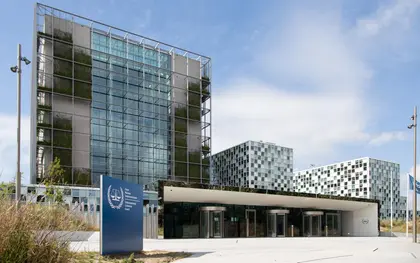The Investigative Committee of Russia plans “to designate as wanted” judges and the public prosecutor of the International Criminal Court (ICC), the head of the committee Аleksandr Bastrykin announced on Thursday in St. Petersburg..
The move is in response to the arrest warrants issued by the Hague-based ICC in March for Vladimir Putin and the Russian Ombudsman for Children’s Rights, Maria Lvova-Belova.
JOIN US ON TELEGRAM
Follow our coverage of the war on the @Kyivpost_official.
Both are charged with “the war crime of unlawful deportation of population (children) and that of unlawful transfer of population (children) from occupied areas of Ukraine to the Russian Federation.”
When the Hague-based court issued the warrant on March 17, Kyiv alleged about 16,000 Ukrainian children had been forcibly taken to the Russian Federation.
Russia’s Bastrykin said: "We will soon place on the wanted list the [names of the] public prosecutor, the presiding judges and the three judges who played an active role in the handing down of this decision [to issue a warrant]."
According to TASS, the Russian state-owned news agency: “On March 20, the [Russian] Investigative Committee opened a criminal case against the ICC prosecutor and judges, deeming their actions as knowingly unlawful since they had no grounds for holding the president and the children’s rights commissioner criminally liable.
“Under the Convention on the Prevention and Punishment of Crimes against Internationally Protected Persons of December 14, 1973, heads of state enjoy absolute immunity from the jurisdiction of foreign states,” the Russian news agency said.

US Must Address Russian Disinformation to Strengthen US Election Integrity
The ICC does not recognize immunity for heads of state.
The Hague warrant issued for Putin has, in theory, impacted Putin’s ability to travel outside of Russia. The 123 nations that are parties to the ICC Rome Statute, that have agreed to abide by the arrest warrants, include the U.K. and all of the European Union states.
Recently South Africa, a signatory of the Statute, announced Putin could not attend the BRICS conference scheduled to be held in the country in August and “not be arrested.”
The Kremlin had been a signatory to the Rome Statute prior to its withdrawal in 2016.
If the ICC convicted Putin of these crimes, he could face up to 30 years in prison.
You can also highlight the text and press Ctrl + Enter






